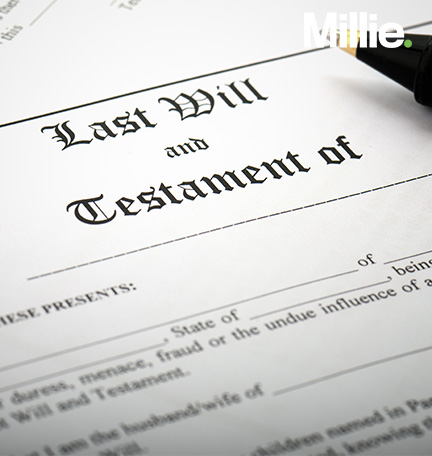Estate Planning Basics
Crafting an estate plan can be difficult but doing so is an important step toward ensuring that your loved ones are well cared for down the road.
As you age, it may not always be pleasant or easy to plan for the future. And that planning includes how your estate will be managed and how your wealth will be transferred after your death. Having a plan can help ensure that your assets are distributed according to your wishes. Here are some tips to help you prepare:
Create Important Estate Planning Documents
“If you don’t have one, you should create a will with the help of a qualified attorney,” says Ryan Nast, Regions Investment Solutions Financial Advisor. A well-structured will can help ensure your wishes are fulfilled when it comes to how your property is distributed after your death.
A power of attorney (POA) form is another crucial legal document to include in your estate plan. A POA form you create gives another individual authority to make legal decisions about property, finances, or health care on your behalf. These powers are often exercised by the appointed individual when the creator of the POA form is incapacitated. Note that there are different types of POA that allow you to control which conditions the POA form takes effect under. You can also limit which legal areas your designated agent can make decisions for.
Additionally, you could implement a living will (also known as an advance health care directive), which outlines your wishes regarding your health care in the event you become incapacitated. Having a plan laid out can reduce the stress for loved ones and other people administering to your estate.
Organize Your Estate Planning Records
Nast recommends meeting with a professional to determine the scope of your estate. “I always try to have a conversation around consolidation of assets,” he says. Try to compile a list of all of your assets and keep it updated so you can reference it during planning.
Additionally, you may want to consolidate financial services to a single bank or financial advisor. It can help make estate planning more streamlined, particularly with the administration of your estate.
Select an Executor and POA for Your Estate
Choose an executor who will be in charge of managing your estate after you pass. State laws vary on who can be chosen as executor, but executors often are close family members such as spouses, parents, siblings, or children.
Rather than choosing someone based solely on their relationship to you, select an executor who is trustworthy, responsible, and organized because an executor will have to manage a lot of paperwork and meet certain deadlines. Also consider picking an executor who is able to handle conflict, as disputes may arise when administering the estate.
Also make sure you have selected someone you trust to exercise POA for you in case you are incapacitated. Similarly, if you are including a living will, you’ll need to designate someone who can be make medical decisions on your behalf.
Consider working with a qualified estate attorney to designate these roles, as well as any related paperwork that will need to be completed in order to document those designations.
Discuss Estate Planning With Family Members
Nast suggests having regular conversations — for example, once a year or every six months — with your family members, beneficiaries, and executor about your assets, wishes, and any formal planning that you have done.
Provide details about your life insurance plans, 401(k) plans, property holdings, and other aspects of your estate in a clear and concise way that everyone understands.
“Your family should know who the primary contact is [when it comes to your estate and the planning you have done],” Nast says. In most cases, the primary contact will be your executor.
You don’t need to share the exact contents of your will, but everyone should know where it is stored. Start this discussion as soon as possible and make updates any time your situation changes.
Is your estate plan still relevant? Find out how often to update your will.





